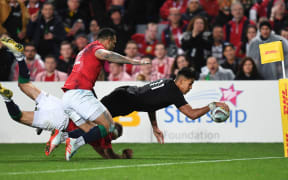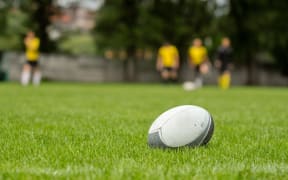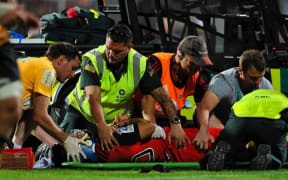Provincial rugby players will be tested for concussion before being injured as the national sport tries to tackle the problem of brain injuries.
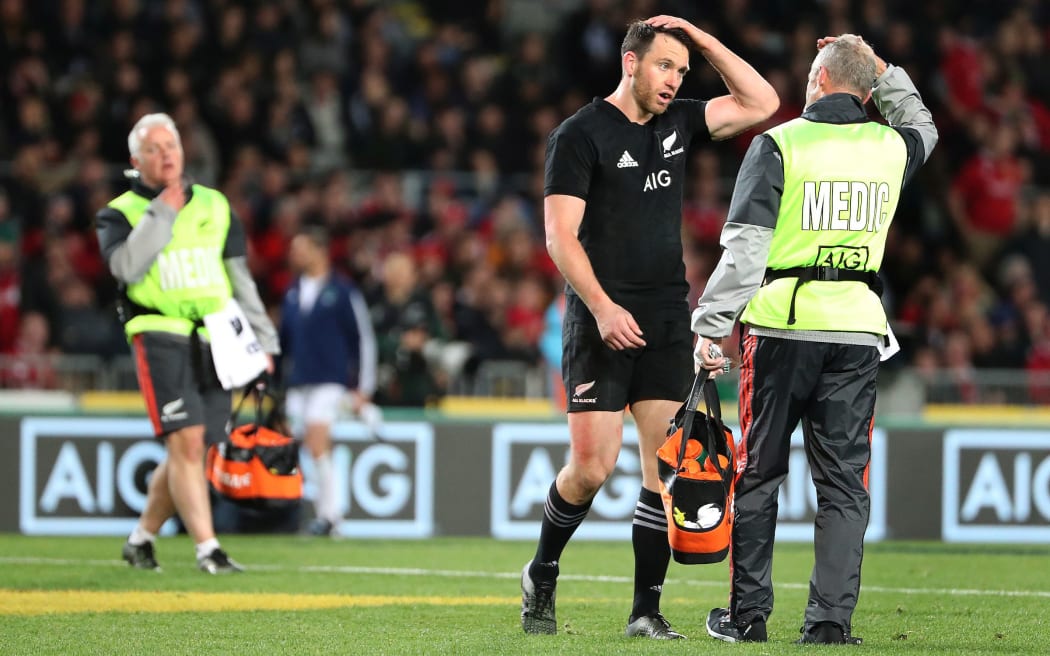
All Blacks vice-captain Ben Smith takes a concussion test during the Test match against the Lions last Saturday. Photo: Photosport NZ
There are about 8 million reported concussions worldwide every year - with roughly half sustained in contact sport.
In March the rugby union unveiled a new scheme which allows referees to hand out "blue cards" when they suspect a player has a concussion.
This meant there would be a mandatory three-week stand-down period, and the player would needs approval from a GP before playing another match.
To aid this effort, researcher Danielle Salmon developed an app in which players take a Standard Concussion Test when they're not concussed.
Dr Salmon said this meant doctors would have a reference point for gauging a player's brain function.
"When they go back at that 21 or 23 days to see the doctor to get medical clearance, it gives the doctor some data that they can look at and say 'you say you're feeling alright, but your memory's not really so I'm not 100 percent comfortable'."
More than 500 people have already taken the test, with their information kept on file remotely.
Dr Salmon said the blue card initiative took power away from the player - which, ironically, was a good thing.
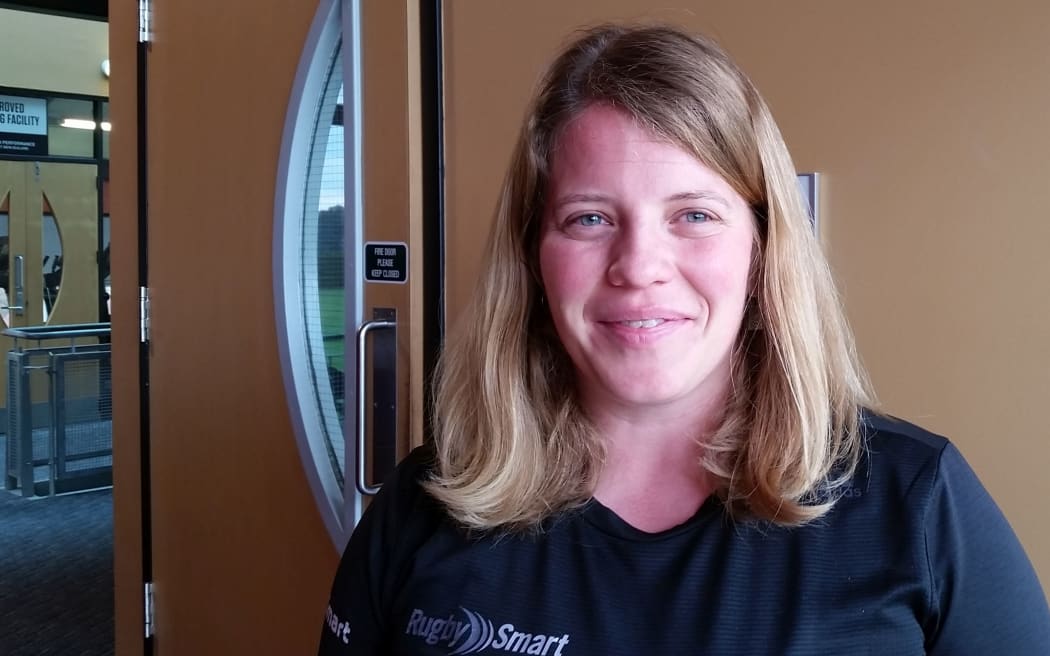
Dr Danielle Salmon Photo: RNZ / Emile Donovan
"If you're in the finals of a game, take a bit hit, you know it's half way through the game and you're seeing stars and you're a bit dizzy, you're not going to want to come [off the field].
"That's where the blue card plays a massive role, because that takes that decision-making away from the player.
"It's an important step because we know from the research that most players won't report symptoms of concussion because they want to keep playing."
The scheme will be rolled out in all the provincial unions for this year's Mitre 10 Cup, and is also being adopted by some Heartland teams and secondary school unions.
NZ Rugby medical chief Ian Murphy said it was a strong response to a widespread problem.
"The referee is ultimately responsible for player health and welfare on the field and we were aware of stories of players perhaps playing, staying on the field because the player wanted to and the coach frankly had a vested interest also.
"Frankly, they'd return 10 minutes later if they had the chance."
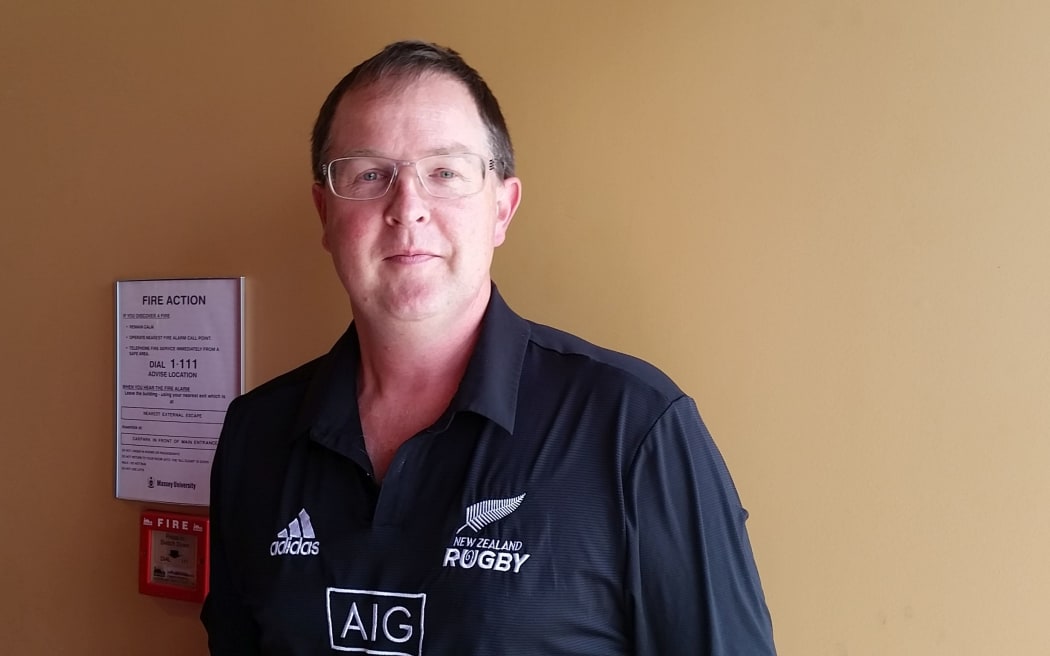
NZ Rugby medical chief Ian Murphy Photo: RNZ / Emile Donovan
There was however a recognition that concussion ultimately cannot be eradicated from the game - and so knowledge of one's own body is paramount.
All Black full back Ben Smith ruled himself out of Saturday's test against the Lions because of a head knock last weekend - a decision his replacement, Israel Dagg, applauded.
"I said to him, you've only got one brain."
"It's pretty simple at the end of the day, we've gotta make good decisions and obviously it's a bit Test, a big series, the All Blacks."
"But at the end of the day he's got two kids, a beautiful wife, and you've just gotta make those decisions.
"The whole team's behind him. Yeah, it's only rugby at the end of the day."
Dr Salmon agreed athletes needed to put their own well-being above the demands of what was, after all, only a game.

